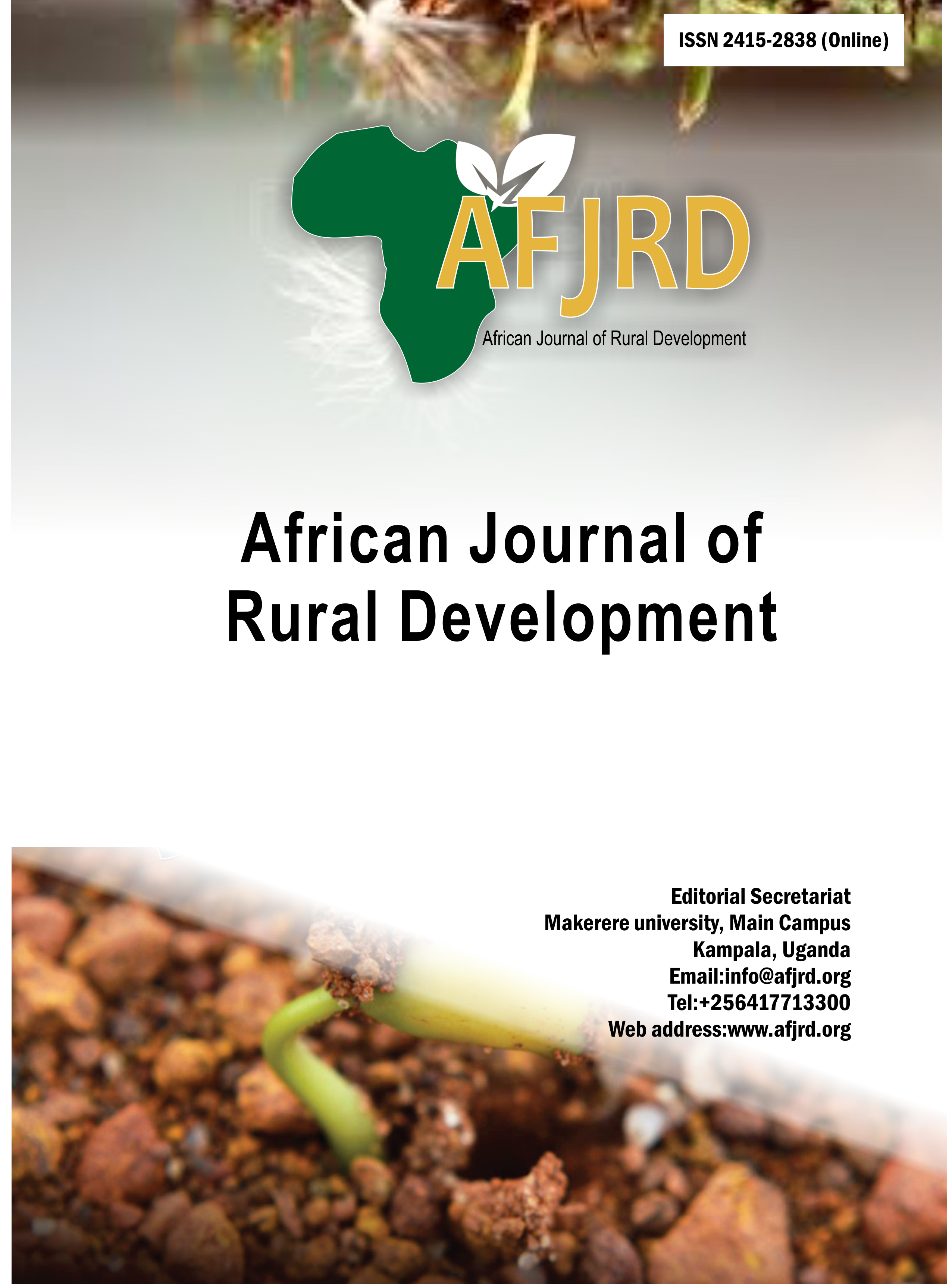Incorporating beneficial nematodes-based biocontrol agents into an integrated pest management strategy of Rwanda: A policy brief
Main Article Content
Abstract
Climate change-induced insect pest outbreaks pose a significant threat to food security in Rwanda, particularly affecting small-holder farmers. Insect damage to crops heavily affects food production. Consequently, farmers have resorted to overreliance on chemical pesticides as control measures, thereby endangering humans and the environment. The use of beneficial nematodes for the biological control of insect pests offers an alternative solution to excessive usage of pesticides. Nematodes are tiny naturally occurring worms that attack insects and can be mass produced for use as biocontrol agents. Entomopathogenic nematodes are safe for farmers, consumers, livestock, crops and the environment. Globally they have been used for many decades for management of insect pests across various crops.
Current research studies in Rwanda demonstrate their effectiveness in controlling both below ground insect pests, such as grubs, and above-ground pests like the fall armyworm. They can be mass produced also in Rwanda and elsewhere in East Africa. Although this biological control method has shown promise in controlling insect-pests in Rwanda, there is limited availability and use of these products due to limits in commercialization. It is being proposed in this policy brief that an easy and minimized registration process be put in place for indigenous beneficial nematodes to facilitate making such products available to Rwandan farmers. It is also proposed to enhance government-led extension services and outreach programs to educate farmers about the benefits and proper use of biological control methods. In addition, they should become a component in the national integrated pest management strategy of Rwanda.
Article Details

This work is licensed under a Creative Commons Attribution 4.0 International License.
